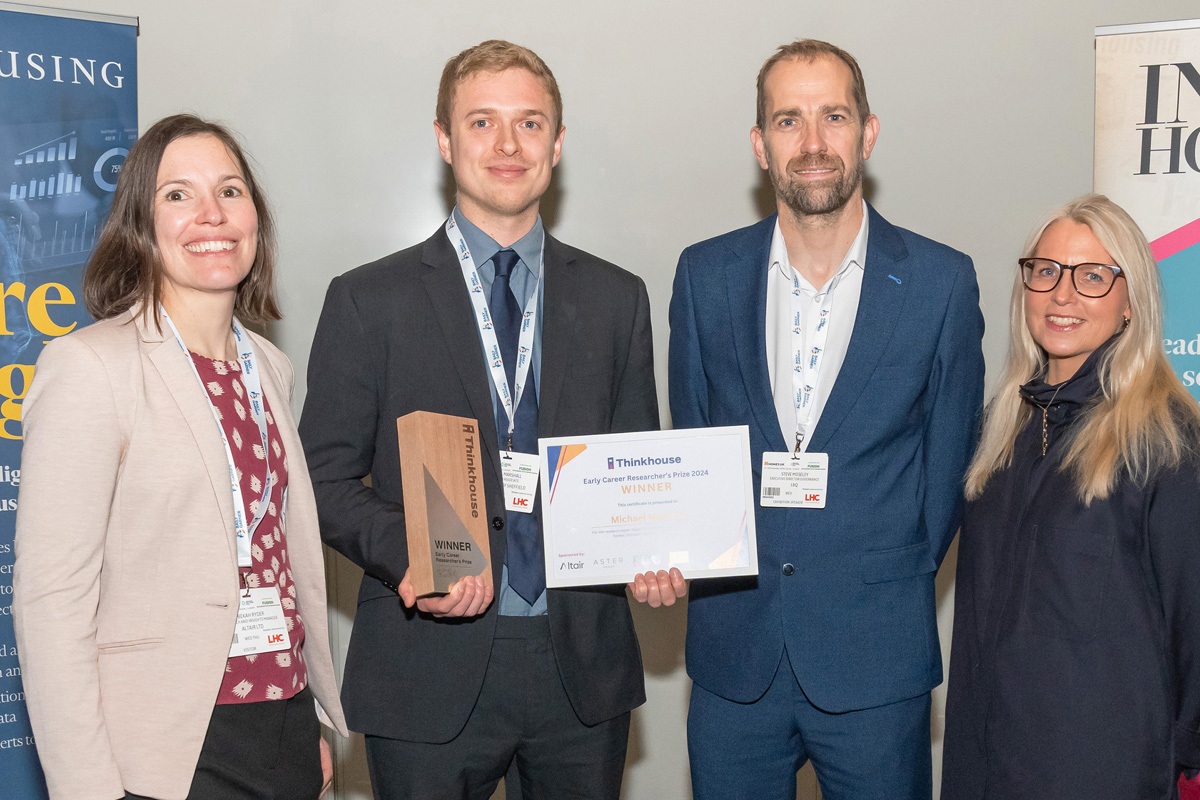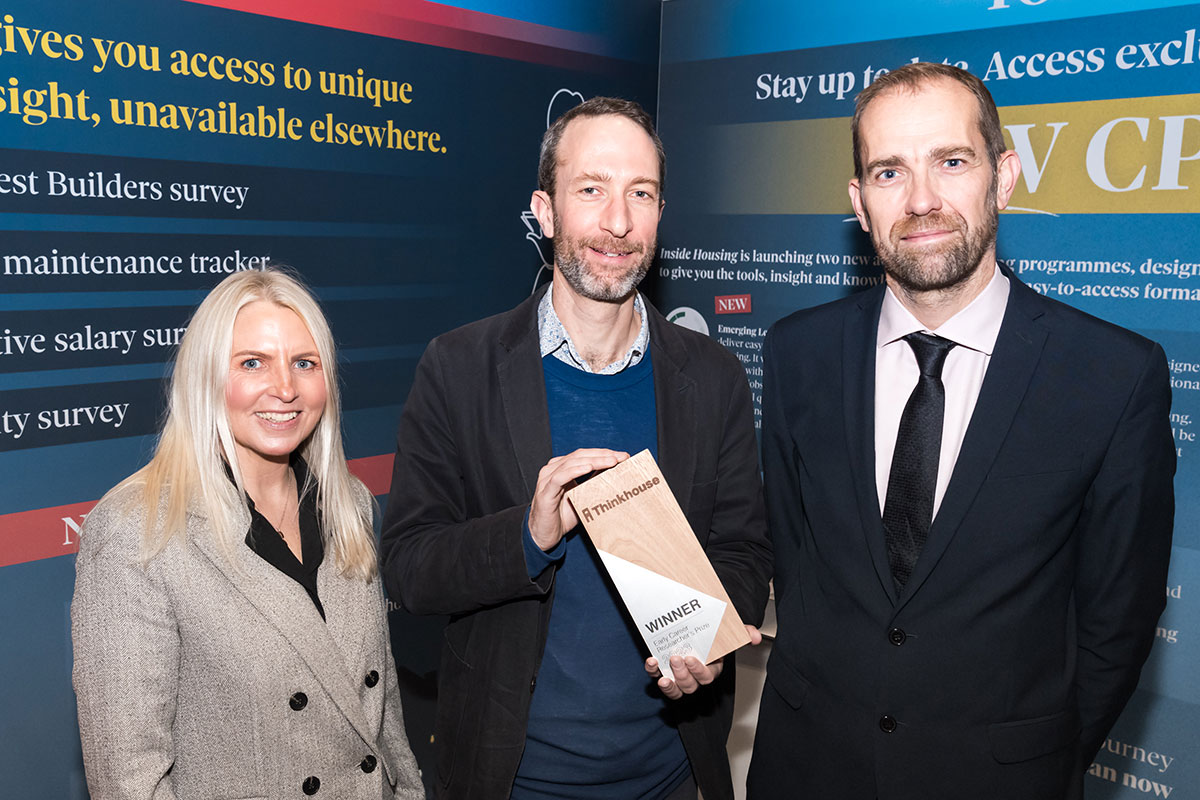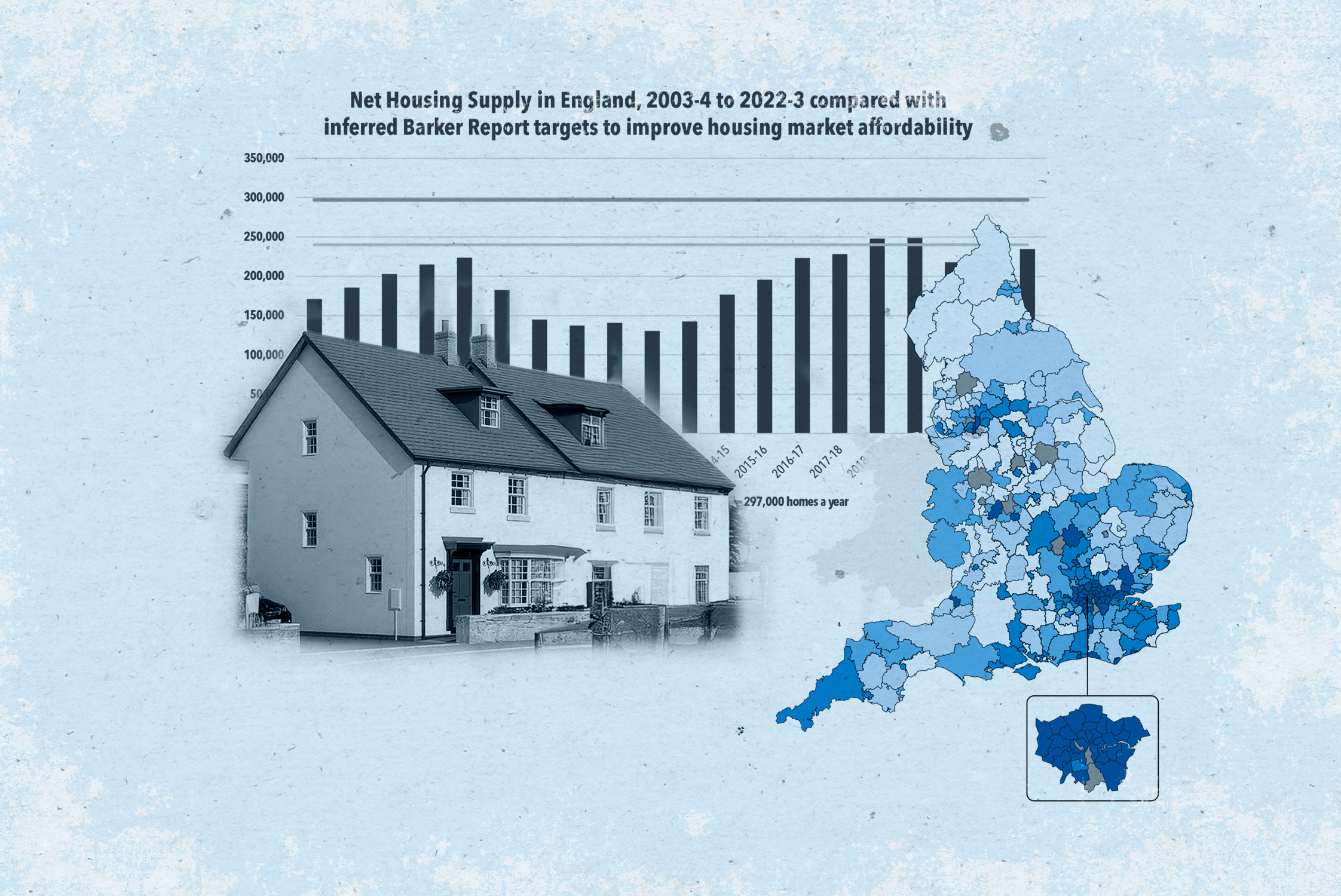Thinkhouse prize awarded for index that tracks areas with non-decent homes
Dr Michael Marshall won the Thinkhouse Early Career Researcher’s Prize for his research on decent homes data, including the creation of a tool that can be used to predict hotspots of non-decency. Grainne Cuffe speaks to him to find out more

In the paper that won this year’s Thinkhouse Early Career Researcher’s Prize, Dr Michael Marshall sets out how his newly created tool, the Non-Decent Index, can be used by national and local government to target hotspots of non-decency in housing.
Dr Marshall, a research associate at the University of Sheffield, argues that there is a lack of knowledge and data on the spatial distribution of housing quality issues, and that this gap inhibits the development of targeted improvement programmes. That is why he created the index, which uses government data to identify strong predictors of non-decency in areas of between 1,500 and 2,000 homes.
The prize was set up by Thinkhouse – a library of research on housing – to promote and encourage a new generation of researchers. It is supported by Inside Housing and sponsored by Altair, L&Q and Aster Group.
It was open to anyone with up to eight years’ research experience, working in academic or non-academic institutions, and the judges based their decision on criteria including clarity of writing, engagement with literature and theory, strength of conclusions, and the extent to which the research is outcome-focused.
So, what is the index, and what argument does Dr Marshall make for its roll-out? What could that achieve?
Dr Marshall started working in social housing about 10 years ago as a project officer at Network Housing Group – now SNG – in the asset management department. Part of that work was compliance with the Decent Homes Standard.
He later completed a master’s degree and then a PhD on how changes in the funding environment have affected the quality and quantity of social housing in England.
Valuable tool
However, his research that won the Thinkhouse award looks beyond social housing to the private sector, where non-decency levels are higher. It looks to address two things: which factors are associated with non-compliance with the Decent Homes Standard, and how that compliance is spatially distributed in England, with a focus on small areas.
Dr Marshall says co-ordinating the data in the private rented sector is more challenging than in the social housing sector.
“There are a lot more actors that you need to co-ordinate across. So having an idea of where you might have hotspots of non-decent homes in the private sector can be a valuable tool for local authorities or regulators to be able to share information, target interventions and target enforcement activity, which is one of the aims of this paper,” he says.
Dr Marshall’s paper first analyses English Housing Survey data, particularly around which factors predict failing the Decent Homes Standard. Strong predictors include the energy efficiency, age, Standard Assessment Procedure rating, and heating source of a property, as well as over-occupation and private rented tenure.
The second part of the research is the creation of the index, building on those predictors and looking at their incidence at the ‘lower layer super output area’ (LSOA) level – areas defined by the office for National Statistics (ONS) as 1,500 to 2,000 households.
“What comes out of that is an index that ranges from zero to one, where one would indicate that we would expect there to be a high proportion of homes within that LSOA that will fail the Decent Homes Standard,”
Dr Marshall says.
The third stage of the paper involves validating the index by using other data sources, including estimates by the Ministry of Housing, Communities and Local Government of the prevalence of non-decency at local authority level.
“By and large, there’s a good degree of correlation to give us some confidence that the index is picking up on variation in non-decency,” Dr Marshall says.
Dr Marshall hopes councils will use the data to target communication with landlords operating in areas flagged by the index as having high levels of non-decency. He says: “We’ve got good evidence that private landlords do want communication around their regulatory obligations, and they want to provide a decent service in the main, barring [some] exceptions, but they feel like information is usually quite poor or not well disseminated.”
He also makes recommendations for national government, including delivering on its commitment to extend the Decent Homes Standard to the private rented sector, offering grants for repairs and renovations, and addressing issues in rural areas.
What is next for the index? “The next stage for me is trying to develop partnerships with local authorities, predominantly to understand what data they might have internally,” Dr Marshall says.
He says the future is “very much dependent upon” the capacity of councils as well as the data they hold. But the hope is that this could build his work “into something larger that can hopefully make a live contribution to our understanding of the issues and housing more generally”.
Sign up for our daily newsletter
Already have an account? Click here to manage your newsletters










